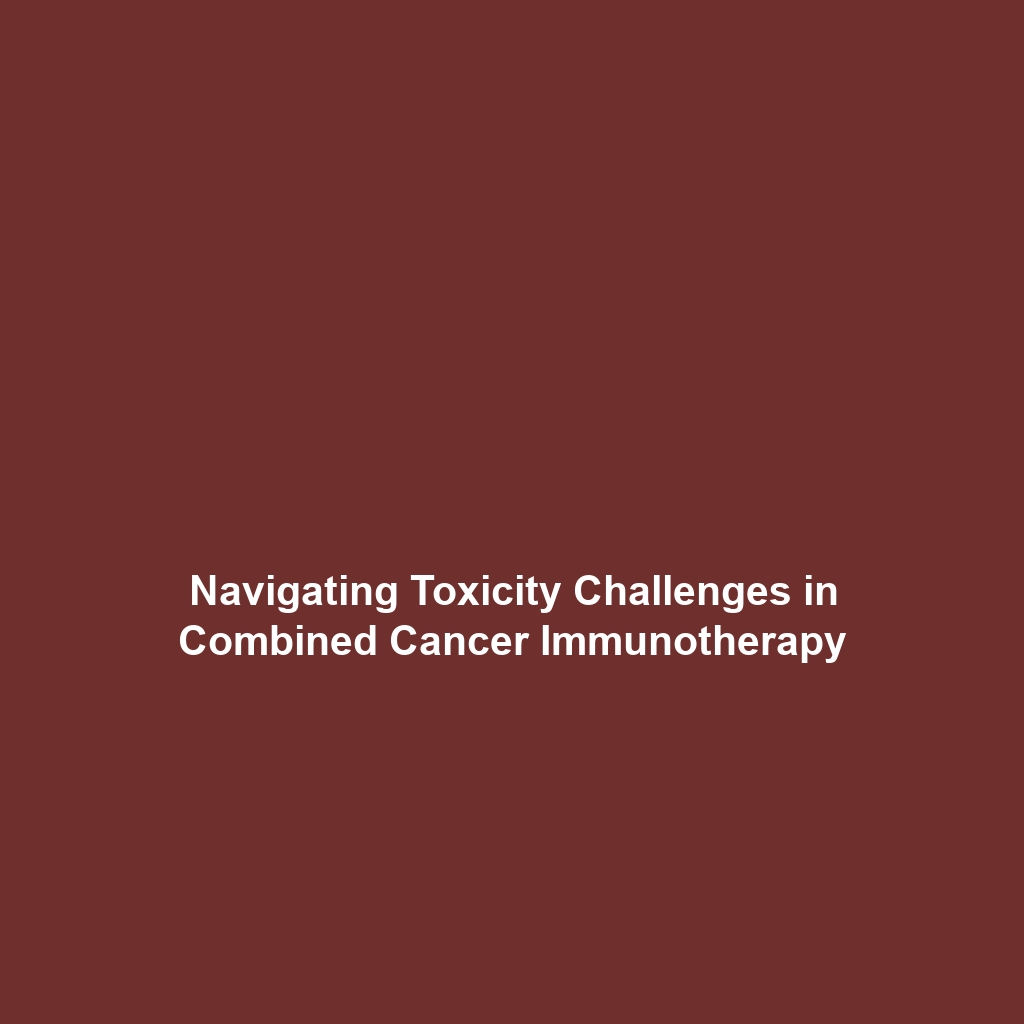How Radiation Can Release Tumor Antigens and Stimulate Immune Activity
Category: Immunotherapy & Cancer
Introduction
The interplay between radiation therapy and the immune system has emerged as a pivotal area of research within the field of Immunotherapy & Cancer. This article explores how radiation can release tumor antigens, thereby stimulating immune activity and enhancing the body’s natural defenses against cancer. Understanding this mechanism is essential as it not only contributes to the efficacy of traditional therapies but also opens new avenues for innovative treatments in cancer care. The ability of radiation to provoke an immune response adds a valuable dimension to cancer management strategies, linking two critical domains of therapy.
Key Concepts
Radiation therapy, a staple in cancer treatment, is traditionally known for its role in damaging DNA within tumor cells. However, recent studies illustrate that radiation also triggers the release of tumor antigens, substances that stimulate an immune response. This phenomenon can be broken down into several key concepts:
The Immunogenic Effect of Radiation
When cancer cells are exposed to radiation, they can undergo immunogenic cell death (ICD), a process that not only leads to their demise but also releases tumor-associated antigens into the surrounding environment. These antigens can then be recognized by antigen-presenting cells, eliciting a systemic immune response.
Complementing Immune Checkpoint Inhibitors
Radiation can enhance the effectiveness of immunotherapy when combined with immune checkpoint inhibitors, which are designed to unleash the immune system’s ability to attack tumors. The release of tumor antigens post-radiation may help overcome the tumor’s defenses against the immune response, improving overall treatment outcomes.
Applications and Real-World Uses
The applications of how radiation can release tumor antigens and stimulate immune activity are significant in the context of cancer treatment:
- Combination Therapies: Utilizing radiation alongside immunotherapy to improve patient outcomes has gained traction in clinical settings, particularly in melanoma and lung cancer.
- Personalized Treatment Plans: Radiation can be designed to target specific tumors, promoting a tailored immune response that may be more effective for individual patients.
- Clinical Trials: Numerous trials are currently assessing the efficacy of combining radiation with immunotherapy in various cancer types, showing promising results.
Current Challenges
Despite the promising potential of radiation to stimulate an immune response, several challenges remain in its application:
- Variability in Response: The immune response triggered by radiation can vary significantly among patients, leading to unpredictable treatment outcomes.
- Timing and Dosage: Determining the optimal timing and radiation dosage necessary to maximize immune response while minimizing harm to healthy tissue is complex.
- Limited Understanding: The exact mechanisms through which radiation enhances immune activity are still under investigation, necessitating further research.
Future Research and Innovations
Looking ahead, there are several exciting areas of research and innovation concerning how radiation can release tumor antigens and stimulate immune activity:
- Advanced Radiation Techniques: Innovations in precision radiation therapies, such as stereotactic body radiation therapy (SBRT), are being developed to optimize the immune response.
- Next-Generation Immunotherapies: Research is being conducted into novel immunotherapeutic agents that could work synergistically with radiation to enhance immune activation.
- Biomarker Development: Identifying biomarkers that predict which patients will benefit most from combined therapies could lead to more personalized treatment options in the future.
Conclusion
In summary, the understanding of how radiation can release tumor antigens and stimulate immune activity is critical to advancing the field of Immunotherapy & Cancer. This emerging synergy not only enhances therapeutic efficacy but also holds promise for developing more tailored cancer treatments. As research progresses, ongoing studies will be crucial in addressing current challenges and unlocking the full potential of this approach. For further insights into cancer treatments, check our articles on Combination Therapies and Immunotherapy Innovations.

